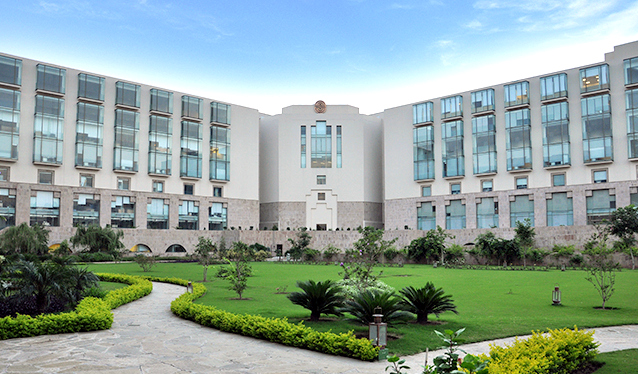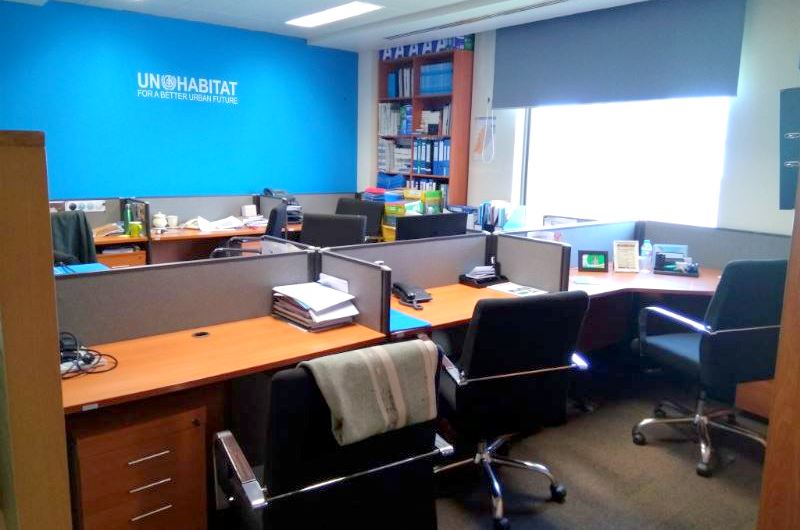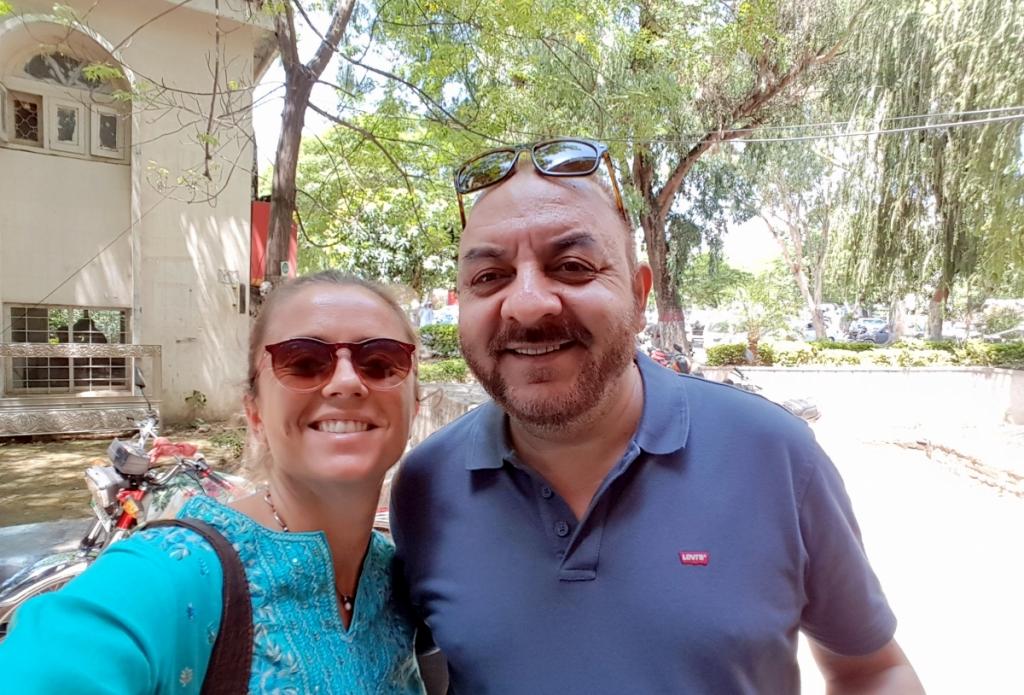Heat, Heart and Hospitality: UNITAR’s PELP team visit Islamabad during a June heatwave
6 June to 4 July 2017, Islamabad, Pakistan – We arrived during an extended heat wave. The temperatures were still in the mid 40s Celsius and the ninth month of the Islamic calendar, also known as Ramadan, had just started. Fasting from dawn until sunset, most Pakistanis went home by 2 or 3 o’clock in the afternoon and left Islamabad’s wide streets and parks deserted. Yet our worries started to dissolve as we entered one of the most lively UN hubs in the country, the Serena Business Complex.

The complex hosts the country offices of many UN organizations in the country. Mr. Neil Buhne, UN Resident Coordinator (RC) and UNDP Resident Representative in Pakistan and his colleagues welcomed UNITAR’s team with Pakistani hospitality. They introduced us to the UN family and made us quickly feel at home. Our PELP mission team, kindly hosted by the RC office and UNDP colleagues, successfully lead multiple meetings with stakeholders in Islamabad, but also in Peshawar using the facilities of the Serena Business Complex.

We were grateful also for the support from DFID Pakistan in facilitating the whole process and introducing us to many key humanitarian organisations which took us to various parts of Islamabad including the Diplomatic Enclave, university grounds and commercial buildings.
At the heart of the many interviews we undertook were conversational questions about current needs, expectations of knowledge management and some of the challenges that the PELP is likely to face during its establishment phase. One of the difficulties pertains to the sheer quantity of information and data that is available, but yet to be analysed and shared in a way that meets the high standards of the humanitarian community for credibility, relevance and authenticity of knowledge.

"It's not a lack of information, it's a lack of relevant information" - Landscape Analysis Interviewee
Many opportunities for the PELP were discussed including its potential to build synergies between silos, such as the broadly framed humanitarian and development spheres, but also across thematic areas such as disaster relief, WASH, agriculture, livelihoods and gender.
“The PELP needs to be a one-stop-shop for humanitarian action” - Landscape Analysis Interviewee
Encouraged by the positive meetings, festive Eid celebrations and spirit, the team returned to UNITAR in Geneva to work on integrating the mission findings into the ongoing design of the Pakistan Evidence and Leaning Platform.
Next stop will be the official opening of the PELP office in Islamabad, by mid-September.
To know more about the PELP project, please visit our project page.
About the PELP
The Pakistan Evidence and Learning Platform (PELP) is funded with UK Aid from the UK government. The PELP strengthens knowledge management in the humanitarian sector thereby ensuring a continuously improving humanitarian response. The PELP seeks to increase the accountability, transparency and effectiveness of the humanitarian system through three interconnected components: a knowledge and learning hub; third party monitoring; and an innovation grants mechanism. The PELP will initially be linked to the UN Resident Coordinator’s Office, and gradually transferred to national entities ensuring longer term sustainability.
Photo 1: Serena Business Complex.
Photo 2: UN-Habitat Office Pakistan in Serena Business Complex.
Photo 3: UNITAR’s PELP team.

